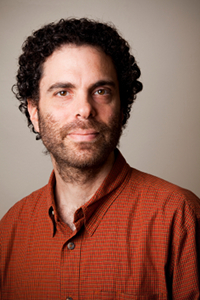Phase 1 trials for new drugs mark an important first step in the process of testing the safety and efficacy of potential new therapies in patients. When it comes to cancer patients, many physicians offer phase 1 clinical trials to patients when they have exhausted other standard care options. These physicians reason that phase 1 trials give patients access to the latest and newest- if unproven- cancer therapies. In 2014, the American Society of Clinical Oncology (ASCO) – the most influential North American professional society of oncologists- issued a position paper declaring that phase 1 studies offer a viable therapeutic option for patients with advanced cancer.
A recent article written by Dr. Jonathan Kimmelman, Interim Director of the Biomedical Ethics Unit at McGill University’s Faculty of Medicine, and published in the Journal of Clinical Oncology, puts into question ASCO’s position on these trials. “While I agree that some patients can- in principle- benefit from participation in phase 1 cancer trials, the vast majority of patients endure burdens like side effects and do not experience major clinical benefits,” notes Dr. Kimmelman. “Declaring all studies as therapeutic undermines important policy objectives, and ignores the fact that some phase 1 studies have limited scientific support. For example, declaring phase 1 studies “therapeutic” emboldens those who would want to dismantle drug regulations and allow companies to market drugs to patients without evidence of efficacy.”
Culled from years of looking at how some commentators justify phase 1 trials, where often their scientific basis and the evidence suggesting their therapeutic value has gone unquestioned, in his article, Dr. Kimmelman lays out one of the most detailed and evidence-based arguments against the therapeutic position, while also urging the development of higher standards for the design, review, and reporting of phase 1 cancer trials.
“There can be situations where patients are justified in viewing participation in phase 1 trials as therapeutic,” says Dr. Kimmelman. “But, for the most part, physicians should present phase 1 trials to patients as opportunities to help advance science- rather than as a way of receiving treatment.”
Dr. Kimmelman suggests that patients with advanced cancer who might be considering a clinical trial should read this article, as should medical centers that host these studies, ethics committees that review such trials, and physicians who enroll or refer patients to phase 1 trials.
This work was funded by the Canadian Institutes of Health Research, and was written while receiving support from the Alexander von Humboldt Foundation
October 20, 2016

